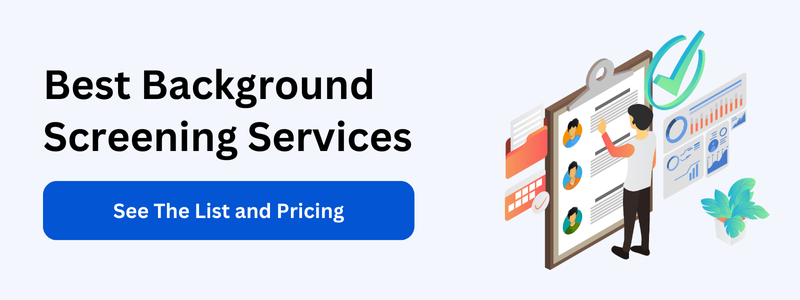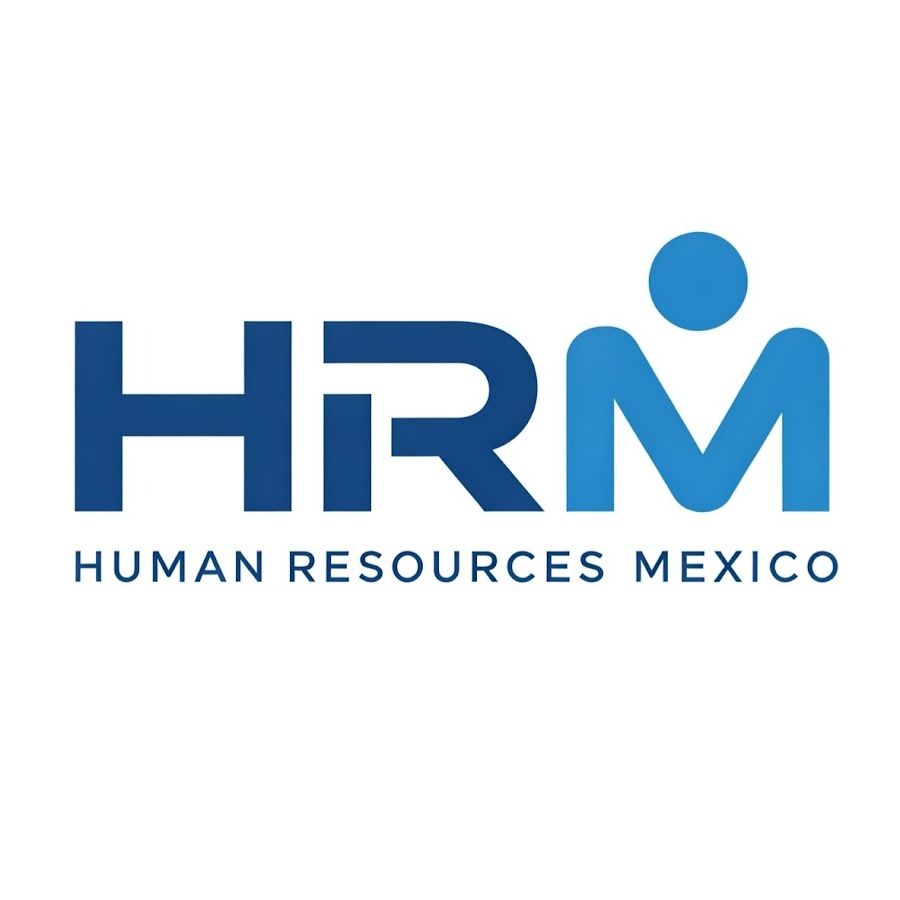Job seekers often misrepresent themselves during the hiring process. Recent recruitment statistics show that 44% of job seekers in the U.S. admit to lying, misrepresenting facts, or hiding crucial information. Even those who don't lie rarely disclose past workplace misconduct, substance abuse history, or other inappropriate activities that might not align with your company's values.
To help you hire the right talent, this article covers everything you need to know about pre-employment background screening and how to legally vet job candidates.
Looking for companies that offer pre-employment background check services to assist in your hiring process? These are the top choices.

What is a Pre Employment Background Check?
A pre-employment background check helps hiring managers verify a candidate’s personal, academic, and professional credentials in order to help determine if they’re safe to hire.
It typically includes verifying an applicant’s educational documents and employment history, running identity and credit checks, scanning criminal records, drug testing, online screening, and other methods.
In the US, for instance, background checks can go as far back as the relevant states allow. Employers usually request a seven-year history since that’s acceptable for most US states. However, some states allow reporting information for up to ten years.
Depending on the scope of the requirements, a background screening process can take anywhere from 24-48 hours to several days. We’d recommend staying away from any background screening services that offer instant results.
Why? Their results are limited to a few Google and social media searches, completely ignoring the fact that some of the most crucial background information is not available online.
Background Checks in the Hiring Process
Background checks are a critical step in the hiring process because they not only tell you if a candidate has the suitable qualifications and experience for a job. They also help you decide if they align with your organizational values and workplace environment.
This is why 95% of employers in the U.S conduct at least one type of pre-employment screening, while 76% have a documented background screening program, according to a study by the HR Research Institute:

For example, here’s a screenshot from Meta’s (Facebook’s parent company) candidate privacy policy that clearly mentions the various background checks applicants undergo during the hiring process.

Google and IBM have similar applicant privacy policies that outline their employee verification practices, including third-party background checks.
These are just a few examples, but you’ll find that almost every organization runs different forms of background checks before hiring full-time and contractual employees.
While conducting pre-employment background checks, you need to comply with all the relevant screening laws. Otherwise, an applicant could accuse you of discrimination and sue your company for not getting hired.
This is why we recommend using an employment background screening provider that complies with the Fair Credit Reporting Act (FCRA).
To make your choice easier, look for an in-depth buyer guide that lists the best background check companies and look for the criteria used to select vendors.
Background Checks For Remote And International Employees
With an increasingly diverse global workforce, conducting pre-employment background checks for international employees is crucial, albeit a little more complex.
Along with the standard employee screening practices, you must also ensure that international job candidates have the necessary legal permits to work for you. This includes compliance with federal laws and relevant state regulations.
Similarly, the rise in remote employment in recent years has also increased the need for background checks. While remote employees won’t need work permits in most cases, you’d still want to verify their credentials and ensure their past activities won’t negatively affect your team.
Types of Background Checks
Employers conduct various background checks through a reputable background screening service depending on their location, needs, legal boundaries, the job role under consideration, and various other factors.
These service providers use publicly available online and offline records and collaborate with multiple agencies to find updated applicant information for background screening.
Let’s briefly discuss the most common background checks and how they are used.
Identity Check
Finding an applicant’s complete identity using their Social Security Number (SSN) is the first step of pre-employment background screening.
Using the SSN with a consumer reporting agency, you can find an applicant’s official name and address, and any changes to them over the years.
Identity verification also gives you access to an individual's credit history and criminal convictions along with other crucial information.
Criminal History
More than 77 million Americans have a criminal history, that’s roughly one in three. Therefore, to stay safe from any Negligent Hiring lawsuits and ensure a safe working environment for your employees, it might be a good idea to conduct detailed criminal background checks on your applicants.
You can use an applicant's SSN to identify any criminal activities along with the nature and location of the offenses. However, you’ll need to check the following databases and repositories for more comprehensive screening.
- County Criminal Record Searches
- Statewide Criminal Records Search
- National Criminal Records Search (NCRD)
- Federal Criminal Records Search
- FBI Fingerprint Database Search
- International Homeland Security Search (OFAC)
In some cases, you might also require a potential employee's fingerprint verification for complete criminal background screening.
Sex Offender Registry
More than 6500 workplace sexual harassment appeals were filed with the U.S Equal Opportunity Employer Commission (EEOC) in 2020. This does not include charges filed with state or local Fair Employment Practices Agencies.
This is why sex offender screening is among the most important background checks. These checks can be performed by scanning the National Criminal Records Database and the National Sex Offender Registry for individual states.
Searching these databases will reveal the details of the offense, the date and state of conviction, and the offender’s current address and employer.
Drug And Alcohol Testing
Substance abuse and alcohol addiction are costly problems for employers in the US. According to the National Clearinghouse for Alcohol and Drug Information (NCADI), drug and alcohol addiction results in losses of over $100 billion annually to US companies in the form of unproductive employees, workplace conflicts and injuries, and health insurance claims.
This is why 67% of US employers use ongoing random drug testing for applicants and employees to keep things in control.
You can engage a third-party service like eScreen, Quest Diagnostics, or any other trusted drug screening service provider to conduct these tests for your applicants.
Motor Vehicle And Driving Records
You can evaluate an applicant's driving records and find their traffic violations, convictions, accidents, suspensions, and any other penalties by contacting the Motor Vehicle Department in the relevant state.
Checking motor vehicle records is crucial for certain businesses and industries such as logistics companies, courier services, etc.
Credit Check
You can evaluate an applicant's financial integrity and credibility with a credit report check by contacting a national credit bureau like Equifax, Experian, or TransUnion. A credit report check includes details of a person’s payment history, bankruptcies, judgments, current debt, etc.
Employment Verification
Employers can confirm an applicant’s employment history by running reference checks and contacting their previous employers, asking them about their job tenure, reasons for leaving, and general conduct.
There aren’t any restrictions on how far back an employment verification can go. However, many states prohibit employers from sharing the salary information of their past employees.
Education Verification
You can confirm an applicant’s academic record by contacting the relevant schools, colleges, and universities. This would help you verify their degrees, specialization, GPA, and other important information.
Professional License Verification
You can contact the relevant certificate awarding body with the candidate’s certificate ID to confirm their credentials.
Social Media Screening
Social media screening - evaluating an applicant’s behavior on popular social media platforms - can give you an idea of their values, interests, and personality. While you can’t use it as a definite screening method to judge someone, it often helps you find valuable pointers and potential red flags.
In general, look for any racist, sexually explicit, and potentially illegal or violent content. Regularly engaging in heated online discussions and trolling are also danger signs.
However, social media background checks should not violate EEOC, FCRA, or any other state privacy laws.
Why are Pre-Employment Background Checks Important?
Hiring someone without adequate background checks poses a direct threat to your business performance, your company’s culture, and your team’s well-being.
While there are numerous reasons you should make pre-employment background checks a permanent part of your hiring process, let’s discuss the most important ones.
Background Checks Are Crucial For Your Brand’s Reputation
Your employees can make or break your company’s reputation and directly impact your bottom line. According to Zendesk’s Customer Trends Report 2022, 81% of customers defect to a competitor if they have more than one negative experience with a brand.
Without appropriate pre-employment background checks, you could easily hire someone with a history of violent behavior to represent your company in a customer-facing role.
Imagine the catastrophic impact on your brand’s reputation if they’re repeat offenders.
This is why 53% of employers cited protecting brand reputation as the number one reason for running background checks.
Candidates Frequently Lie And Misrepresent Facts
In a recent survey of 3500+ job applicants, 63% admitted to lying about one or more aspects of their professional or personal credentials. Unfortunately, only 37% of them are caught.
Without thorough investigation and screening, you’re likely to hire someone with fake degrees, certifications, or work experience.
Wrong Hiring Decisions Have Serious Financial Implications
As an HR professional, you probably know that wrong hiring has serious costs for a business. According to the US Department of Labor, the average cost of a bad hiring decision is at least 30% of the individual’s first year’s earnings.
So if you wrongly hire an employee at an annual salary of $60K, the cost to your organization can be $18K per annum.
If pre-employment background checks aren't a part of your hiring process, you’re likely to have many such employees.
Imagine the collective costs to your company.
Workplace Violence And Racism Impact Productivity
Diversity is an organization’s strength. According to a study by McKinsey, companies with a more diverse workforce are on average 30% more profitable.
However, a single employee with violent and racist tendencies can severely hurt a company’s culture. According to a study in the American Economic Journal, biases lead to people picking colleagues of the same ethnicity even if they are less productive – foregoing 8% of their earnings in the process.
Similarly, a study found that 2 million+ people are affected by workplace violence because of violent colleagues resulting in estimated losses of $130 billion per annum.
All of this could be avoided by implementing rigorous pre-employment background screening procedures.
Legal Issues in Background Checks
Pre-employment background checks are crucial for your company’s long-term security. However, they can also backfire in the form of heavy lawsuits and fines if you do not comply with EEOC, FCRA, and other relevant federal and state laws.
Let’s quickly discuss some of the common legal risks of running background checks and the cost companies pay for violating the relevant laws.
1. False Accusations And Incorrect Information
In the US, whether you run pre-employment background checks yourself or partner with a service provider, you need to double-check your results to ensure you don’t falsely accuse an applicant.
Because false or incomplete accusations not backed up with sufficient evidence are a direct violation of the Fair Credit Reporting Act (FCRA), resulting in heavy fines.
For example, Execu|Search Group (ESG), an executive recruitment agency, was sued by an applicant under the FCRA in 2017 for incorrectly accusing him of criminal activities.
In a much more high-profile case in 2015, Amazon and its staffing company, Staff Management Solutions, were sued under the FCRA for failing to provide “pre-adverse action notifications” to an applicant and confusing him with another individual’s criminal offenses.
2. Discrimination Against Candidates With Criminal Records
Criminal record screening is crucial for ensuring your organization's safety. However, this background check is also the riskiest.
For example, 35+ states have passed ban the box laws that refrain employers from running criminal checks on applicants until after they’ve been found to have met the initial qualifications for a position.
These laws are designed to counter discrimination against black and Hispanic job seekers.
In 2019, Dollar General, one of the largest retailers in the U.S., lost a $6 million lawsuit by the U.S. Equal Employment Opportunity Commission (EEOC) for running discriminatory criminal background checks against African Americans.
In a similar case in 2017, Bank of America lost a lawsuit by an African American job applicant for racial discrimination and unfair criminal checks.
3. Non-Compliance with Illegal Drug Screening Laws
Drug screening risks discrimination lawsuits because of non-compliance with state laws.
For example, several U.S. states do not allow marijuana testing anymore. Many other states, California for instance, prohibit employers from running drug tests before making a conditional employment offer.
This is why it's crucial to hire a credible background screening service provider experienced in handling complex screening procedures while complying with the relevant federal and state laws.
How to Conduct Employment Background Checks In-House (Step-by-Step)
While outsourcing candidate background screening to professional service providers is a growing trend, many companies still prefer in-house background checks. However, conducting in-house background investigations is a complex process that involves several steps to ensure that you thoroughly check an applicant’s professional and personal background for any red flags.
To avoid any legal problems and incorrect hiring, you should carefully follow each step in this process.
Step 1: Develop A Comprehensive In-House Background Checking Policy
An in-house background checking policy governs your pre-employment screening activities, defines their scope, assigns responsibilities, outlines policy actions, and ensures compliance with the relevant federal and state laws.
It is critical to develop a background checking policy to avoid inconsistencies in your background screening activities that could potentially result in legal and administrative problems.
Different organizations develop screening policies based on their business needs. However, every in-house background checking policy needs to cover the following points.
The Departments/Roles Responsible For Background Screening
An in-house background checking policy should clearly identify the departments or roles in the organization responsible for conducting background screening and owning its results.
It should also define the authority of the responsible department/roles to act on behalf of the company to seek the relevant public or private information of an applicant needed to perform background screening.
Doing this helps organizations control who acts on their behalf when accessing sensitive information and fix responsibility within the company in case of an inaccurate background investigation.
Outlining Background Check Types For Different Employee Categories
There are many different types of background checks, and all of them do not apply to every position in an organization.
This is why it is essential for an in-house background checking policy to determine what tests or checks to run on which employees.
An easy way to do that is by defining employee categories based on their access to the company’s critical information and responsibilities within the organization:
- Category 1: could include all low-level administrative staff such as janitors, security guards, drivers, etc., who are not a part of the company’s core functions. An organization could choose to run basic background checks for category 1, such as identity verification, criminal record, motor vehicle, driving records, etc.
- Category 2: could include the mid-level management and operational staff performing day-to-day business activities. A company could choose more comprehensive background checks such as employment verification, academic background, drug testing, social media screening, etc., in addition to the checks applied to category 1 employees.
- Category 3: could include the senior management and decision-making roles in the organization. A company should ideally apply the most comprehensive background checks to such roles since they have access to all the crucial company information and often have the authority to represent the company in public appearances. The background checks for this category could include financial record screening, credit checks, sex offender records, etc. in addition to the checks applied to the other categories.
An in-house background check policy should also indicate which tests or checks should be conducted in-house and which could be outsourced when needed.
For example, many organizations prefer to conduct professional and academic screening in-house while outsourcing criminal record checking, credit record screening, and drug testing to third-party agencies.
Defining these factors in the background screening policy helps organizations provide a proven framework to their team, optimize the cost of screening, and minimize inaccuracies in background screening results.
The Information Required From Applicants For Background Checking
An in-house background checking policy should also outline the information it can request from an applicant to perform background checks.
This could include professional references from past employees, experience letters, academic and professional qualification proofs, license and identity copies, and the applicant’s consent for conducting background checks.
The Impact Of Background Screening On Employment Decisions
A background screening policy should list the possible impact of an investigation on an applicant’s job prospects and categorize the results of different offenses according to severity.
For example, a company can immediately disapprove a candidate if they’re found lying on their resume, involved in high-profile financial crime, or sex offenses in the past.
The Timing Of Background Checks
The timing of background checks varies with different states. So, a company’s policy should clearly mention when a background check will be conducted in the recruitment process. This is important so that the applicant and the recruitment team know the pre-requisites of hiring an employee.
Step 2: Ensure Legal Compliance Of Your Policy
It is critical to ensure that your in-house background checking policy complies with all the relevant federal and state laws because compliance failure can lead to heavy fines and penalties worth millions of dollars.
So, before implementing a background check policy, consult with a legal expert to ensure that it does not violate any legal requirements.
Here are some of the key factors to remember.
1- Companies running background checks in-house do not require an applicant’s consent. However, the FCRA still requires companies to follow a three-step adverse action process when making unfavorable decisions due to an investigation.
- Send a pre-adverse action notice with a copy of the public information used in the background check and a Summary of Rights.
- Give candidates suitable time to respond.
- Send an adverse action notice listing the reasons and background.
2- Another legal aspect to remember is the ban-the-box laws. If an organization is in a state where these laws apply, it must ensure that the background check only starts after the conditional job offer to the applicant.
3- The U.S. Equal Employment Opportunity Commission (EEOC) enforces Title VII of the Civil Rights Act of 1964, which prohibits employment discrimination based on sex, race, color, religion, or national origin. Some background checks, such as criminal records, can lead to discrimination against minority citizens who are often arrested for minor offenses. Therefore, a company’s policy should consider this factor when evaluating screening results.
Step 3: Notify The Applicant
To kick off the screening process, organizations should notify applicants in advance. In the case of in-house screening, company’s are not legally bound to do so. But it’s still advisable to send a formal notice so that the applicants cooperate during the process and don’t feel offended in any way.
Step 5: Conduct Background Screening
Once the applicant is notified, the background screening process can begin. As we mentioned earlier, a company needs to decide what level of testing it requires based on the applicant’s job role and responsibilities.
However, there’s no difference in the types of tests used for in-house and third-party screening.
Step 6: Allow The Candidate To Take Corrective Measures
If an organization finds potential discrepancies in an applicant’s background information, it needs to notify them before proceeding with any adverse actions (as discussed earlier).
Employers should share the results of their background checks with the applicant along with the publicly available information used in screening and allow the candidates to respond in a suitable time period.
Step 7: Reach Your Employment Decision
If an applicant’s responses do not satisfy the employers, they can terminate the employment process provided they have the legal grounds to do so.
However, if an applicant provides evidence contrary to the findings of the background screening results, employers are bound to review their findings and ensure that the applicant is not penalized incorrectly.
Benefits of Pre-employment Background Check Services
Outsourcing pre-employment background screening to a professional company has several advantages.
Expert And Skilled Background Checking Professionals
A pre-employment background check company consists of experienced professionals who are well-versed in all the relevant federal and state laws and have the necessary connections to perform effective employee screening.
They have proven frameworks and systems for every type of background check, due to which they’re able to perform the necessary screening much faster.
Their experience also minimizes the chances of inaccurate and false findings.
Allows Companies To Focus On Core Functions
Conducting in-house background screening puts an additional burden on employees to do what they often don’t specialize in. On the other hand, outsourcing takes the responsibility off an organization and allows it to focus on its core business functions while the professionals trained in background screening do their job.
Minimizes Legal Risks
Outsourcing pre-employment screening to a professional service provider minimizes a company’s legal risks in two different ways.
- Professional background screening companies understand the relevant state and federal laws, which is why they’re unlikely to ignore or violate them during the screening process.
- The service provider is responsible for any legal violations minimizing any impact on the client.
Drawbacks of Third-party Background Check Services
Hiring professional pre-employment background check companies comes with a lot of advantages. But it has a few potential drawbacks as well.
Pricing
Hiring a professional background check company can be expensive for organizations screening multiple employees together or running comprehensive testing.
Most service providers don’t openly list the charges on their websites and prefer to offer custom quotes since multiple variables are involved in pricing background screening services.
However, the rates can vary from $5-$10 to $300 per employee, depending on the nature and the scope of the background check.
Unfair Bias
There’s always a risk of an unfair bias in the background screening company towards a specific religious or ethnic group. As a result, the screening results can be skewed and may pose the risk of legal action by the rejected applicants. This is why it's crucial for organizations to work closely with their chosen service providers to ensure nothing like that happens.
Final Words On Running Pre-Employment Background Checks
We’ve covered all the crucial aspects of running pre-employment background checks in this detailed guide. But knowing how background screening works isn’t enough to do it yourself because of the legal risks associated with it.
So, as we’ve said before, we recommend partnering with a professional service provider. To make your task easier, we’ve handpicked some of the best background check services and shared their strengths and weakness after thorough research and testing.
But don’t just take our word on any service provider. Instead, shortlist the ones you like and discuss your specific background screening needs to determine if they’re the right fit for your business.


























